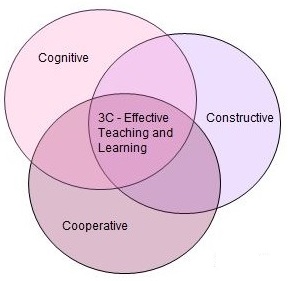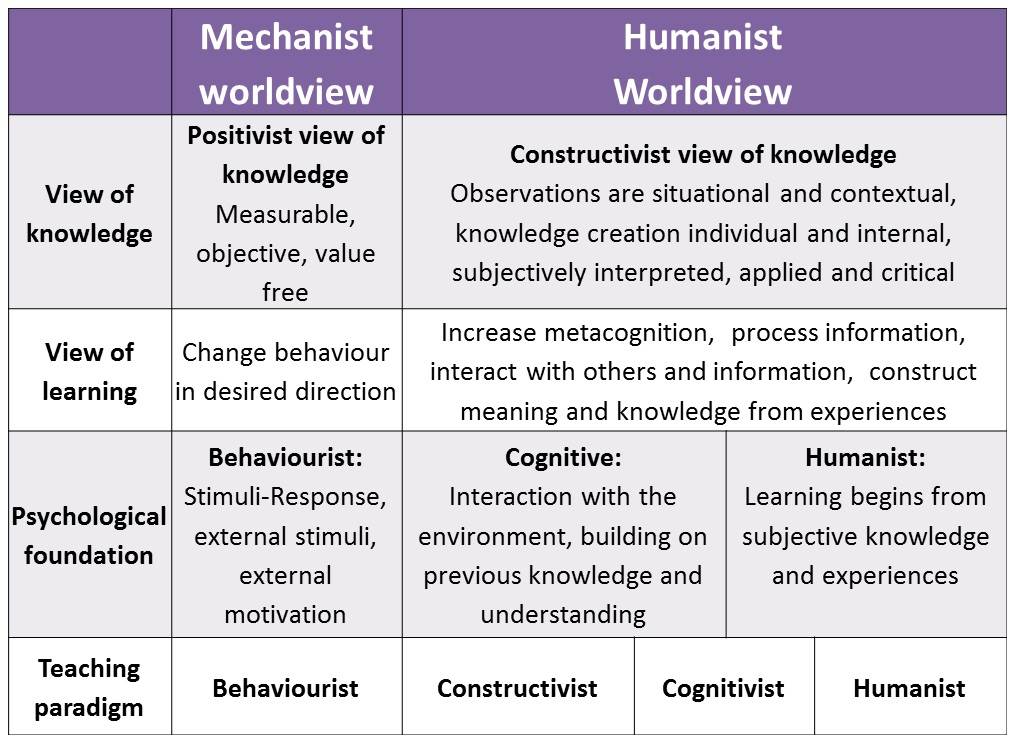
Nina's 3C - Toolbox for Effective Teaching and Meaningful Learning

Making thinking visible, Meta-cognition, Learning strategies, Executive functions, Teaching for transfer, Self-regulated learning, Self-determination, Timely and effective feedback, Learning ownership
Active learning, Deeper learning, Experiental learning, Teaching how to choose, Learning cycles, Learning process, Students' self-evaluation, Successful learning experiences, Authentic learning
Emotionally safe learning environment, Meaningful learning, Group working, School enjoyment and school well-being, Dialogic teaching, Peer coaching, Assessment for learning
How the 3Cs work in everyday teaching
3Cs focus on supporting students' deeper learning and building transveral skills by helping teachers to include important pedagogical components to their everyday instruction:
- Learning to learn
- Inclusive learning environment
- Including learning strategies to instruction
- Increasing the meningfulness of learning
- Using assessments to support learning
- Classroom as a learning community
- Enhancing students' ownership of their learning
Cognitive approach emphasizes the need for students to make sense of what they are learning. This is why we as teachers must provide timely and effective feedback to support students' deeper learning process. Meta-cognitive skills are very important for using cognitive approach in learning, so we can help students to learn how to help themselves learn better by explicitely teaching about different learning strategies. Supporting students' self-regulated learning cycles helps teachers to increase students' ownership over their own learning. Emphasizing intrinsic motivation and self-determination (competence, autonomy and relatedness) helps us to make learning more meaningful for our students.
Constructive practice focuses on engaging students to actively construct their own knowledge, both individually and collaboratively. Students are constructing meaning from their classroom experiences and engagement with the learning materials, environment, and interactions with the teacher and other students. Experiential learning experiences and reflective practice are important for knowledge construction, which is why the self-regulated learning belongs also to the constructive tools section. Authentic learning tasks in meaningful and realistic settings help students to situate their emerging understanding. Deep learning experiences can lead students to become ubiquitous learners, who learn anytime, anywhere, extending beyond school walls and hours.
Cooperative practice focuses on building an emotionally safe and supportive learning environment for each and every student. A place to belong. A classroom - either virtual or physical - where students can ask questions from teachers and each other to better construct their knowledge, where assessments and feedback are designed to support the learning process, and where students do not complete against each other. The beginning of this is the inclusive learning environment where students can coach each other knowing that everyone learns better when they collaborate. The result is your classroom becomeing an active learning community where students' learning is unbound and ubiquitous - extending academic achievement beyond test results and helping everyone to become a life-long learner.
Cognitive approach
Click here to explore the cognitive tools for enhancing students' learning and increasing your knowledge of pedagogy and assessments that support metacognition.
Constructive practice
Click here to explore the constructive tools for engaging students in individual and social construction of knowledge.
Cooperative practice
Click here to explore the ways of creating a learning environment that support deeper learning.
Learning Theories in 3C model
Sometimes it is hard to recognize the underlying ideals in all the great resources that can be found in the internet. What has been helpful for me, is to think first what is the view of the knowledge and the learner in any given resource, and then either use it as it is or tweak it so that it better fits to my philosophy. The picture below shows an overly simplistic model of my thinking about why behaviorism shouldn't be the only learning theory used in the classroom, or while doing instructional design.

The learner-centered and learning-centered education belongs to the humanist-constructivist worldview and approach to education, deriving from cognitivist and humanist educational psychology.
The teaching paradigm for engaging in learner-centered instruction is usually a combination of constructivist, cognitivist and humanist practices. The main emphasis is in supporting the individual learning process and the teacher is seen as a learning facilitator instead of the source of information.
When the scientific model used in a resource only refers to the hypotetico-deductive model of reasoning, and omits all other types of inference, I know the mechanist worldview is emphasized over socio-cognitivist humanism. Examples of this are references to formulating hypotheses or following the "traditional" scientific method that is familiar from positivist or objectivist view of reality (knowledge is measurable, objective and value free). Constructivist or subjective view of knowledge emphasizes situationality and contextuality of learning.
When education focuses on learning, the emphasis is not in arriving to the only one objectively correct learning outcome that has been defined during the instructional design phase, but in supporting students' reasoning skills and their ability to infer and support their claims with suitable references.
I think it is appropriate to note here that I am a qualitative researcher and strongly believe that qualitative and quantitative research must be conducted hand in hand in order to both create theories and test them. Students in 21st century MUST be taught both approaches, and we as educators have much work to do in getting there.